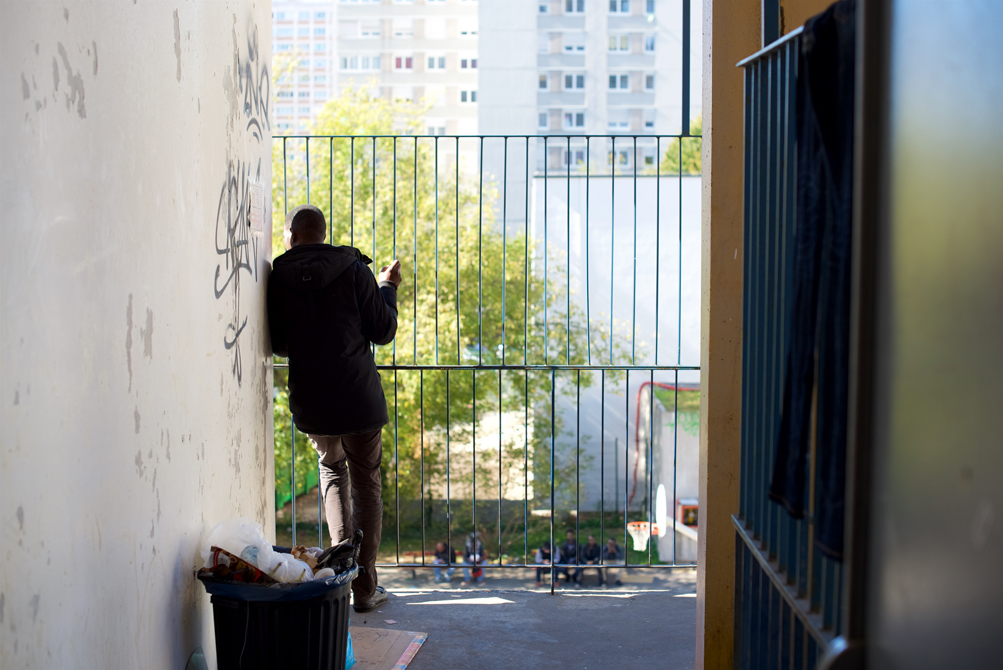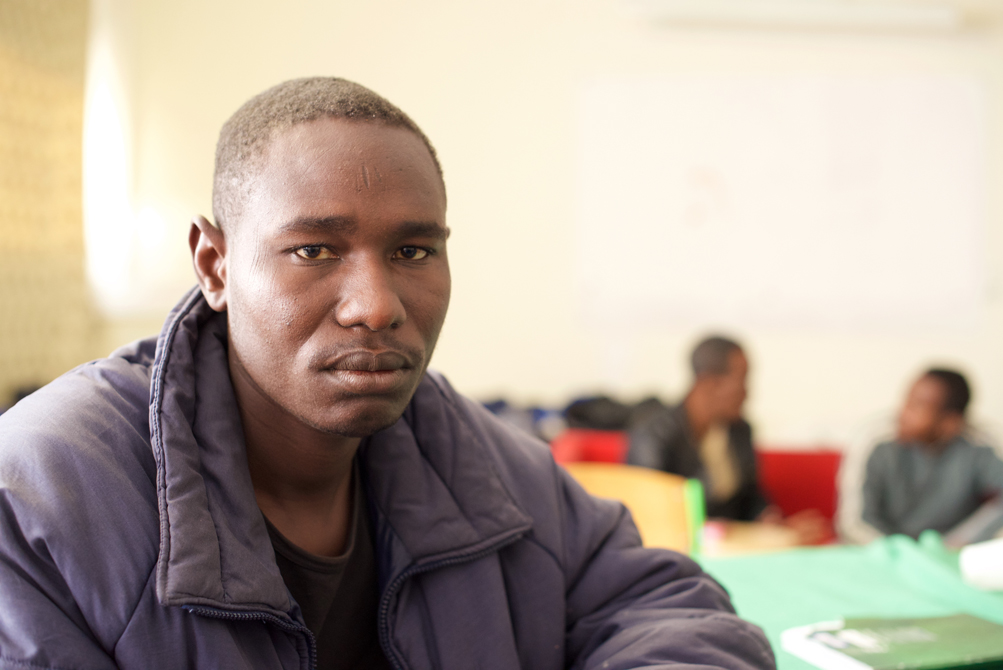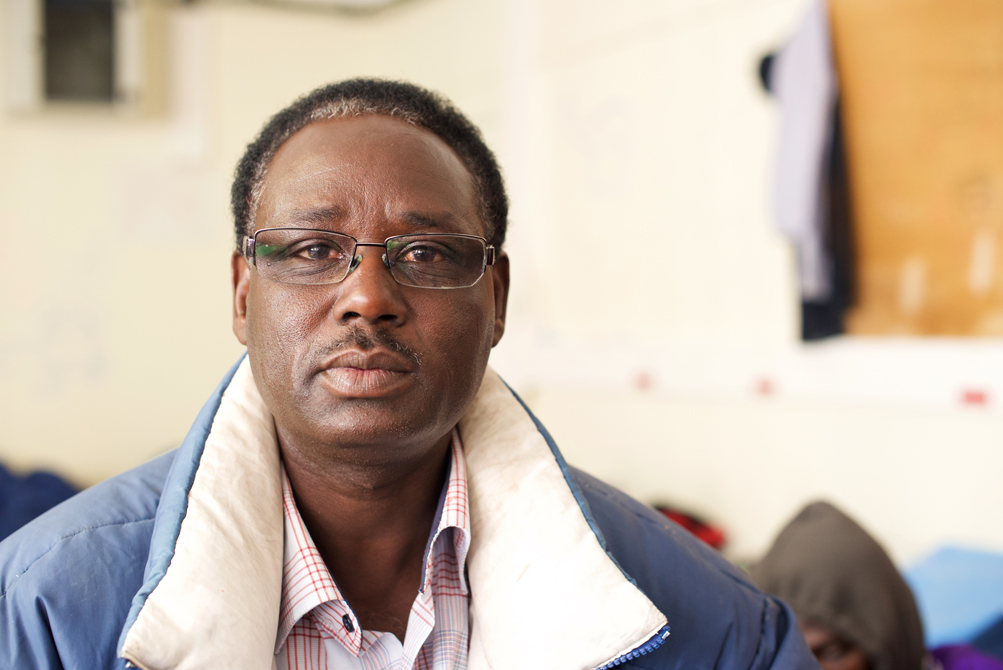On a recent trip to Paris, we visited a migrant camp in an abandoned high school in northern Paris on Rue Jean Quarre. A friend helps migrants and refugees with paperwork and he offered to escort us to the school to meet a few of the migrants. The former school now houses about 250 migrants and is separated into two halves—one side for men and the other side for women and children.
When we enter a classroom, we see about twenty men sitting and lying on the mattress-lined floor. Their kitchen is in one corner of the room—it consists of two portable tables, a few plastic bowls full of water, and a collection of packaged food that was donated by local Parisians.

As we move toward the center of the room, two men approach us and offer us chairs. We sit with them. We hear their stories. But this is only one of the many rooms in the school, and these are only two of the many stories.

“I want to go from here—to England or Canada—but they don’t let me to go from here. If you want to move from country to country, they close the borders. Why? I don’t know. They don’t want us to go. Why? What’s the problem? No problem. They don’t want us to move, they don’t want us to work. I don’t know. If I know this before, I never come to Europe.”
“What did you think it was going to be like in Europe?”
“I think it would be good life. I left my country, Sudan, in 2013. I came to Libya, but Libya was so bad, so awful. I left the Libya to Europe. In Europe, I stayed in the street for one month—two week, three week. If I want to go, the border closed. I left Sudan because of the war. The war in Sudan since 2003. In Libya is also war. If you get out from Libya, it’s difficult. Some of us not try, not know how to get out from Libya. But we get out, come to Europe and Europe still, so bad. No house, no work. I want a future. We are out of war, but we are also still in war but not by gun.”

“Where does the help come from?”
“Lots of people here come to help us. They give us food and supplies. They don’t work for an organization; they’re normal people. Good people from France. They bring us all—clothes and food.”
“Where do you want to go?”
“We want to go to any country. I think England don’t like us to go to there. They don’t let us to go to any place. I want to go from Libya to border cross, only here or Italy. I met some Sudanese who stay in streets in Italy for eight years. No house, staying in street—for eight years. Here, also, you can spend your life in street.”
“What is your hope for the future?”
“I want to study. I want to go back and help my brothers and my sisters. I left them in a bad case. I want to do good for people but how I can do this? … I studied chemical engineering at home, now I study English.”
“What was your life like in Sudan before you left?”
“Life before war … that happened overnight. Me, I had family, there were animal. Me, I studied school. We accept to live in Sudan. Life was typical but also with war is fighting, so we run away. If you want to die, stay in Sudan. So I come here. I think the situation in Europe is better than it is. I feel safer now … It is difficult, very, very difficult. My mother and father were killed by government.”
Megan and Shayne Woodsmith are both U of A Alumni. Shayne studied creative writing and Megan studied philosophy. Shayne instructs writing at the U of A Faculty of Extension and Megan was a Program Coordinator at the U of A Faculty of Extension.




